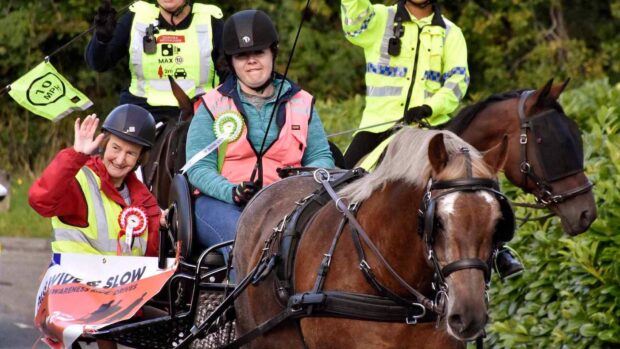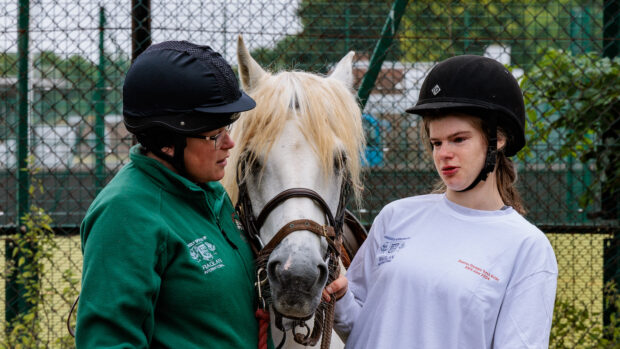Nearly 100% of horse owners believe that more action is needed to improve the enforcement of ragwort control regulations.
So says a survey conducted by the British Horse Society (BHS) about the poisonous — and often fatal if ingested — plant, ragwort.
The survey ran from 22 July-15 August and had 13,963 respondents, of whom 97-99% said that greater awareness is needed, more action should be taken and that local councils’ monitoring of the plant needs to be beefed up.
Around 20% of horse owners knew of horses that had been suspected or confirmed as having been harmed by ragwort, and 93% of people said that they take preventative measures to reduce the risk posed by the plant.
A massive 84% reported having seen ragwort on land that is used by horses in the seven days prior to completing the survey.
“There are so many areas of conflicting rules,” wrote one respondent. “Lots of horse owners have landlords not willing to help with the control of ragwort. We are all responsible for pulling and regularly spraying it.”
Another said: “Highways need to step up as it is terrible next to motorways. A visit to the New Forest, where there is a distinct lack of ragwort, shows us control is possible.”
“Having lost a horse from ragwort poisoning over 30 years ago, I have watched both landowners and horse owners seem to ignore the dangers,” added another owner.
“Landowners ought to be made more liable for clearing it, but public bodies ought to take their responsibility seriously, particularly highways and local authorities.”
In response to the results, the BHS, with Defra’s input, will be producing a toolkit for local equine groups to give people clear and targeted advice on dealing with the plant.
The BHS is also calling for local authorities, landowners and local equine groups to set up local “ragwort action partnerships” to tackle the issue in order to help raise awareness and aid horses’ wellbeing.
“Our survey enabled us to better understand the extent of the problem that ragwort causes, and has informed our actions going forward,” said Lee Hackett of the BHS.
“Introducing a toolkit and local ragwort action partnerships will be important in raising awareness of the best practice and effective mechanisms for controlling ragwort on their own land and respective legal responsibilities, as well as improving communication between the individuals and organisations who are affected by ragwort and involved in controlling the spread of the weed.”
Ref: H&H 27 November 2014
Read related news stories from H&H

New ragwort research project launched
Online survey hosted by the BHS urges horse owners to have their say in the fight against the poisonous weed

Man banned for failing to remove ragwort
A man has been banned from keeping horses for 10 years after his mare was put down after suffering from

Britain’s ragwort is worse than ever this year
This year's wet weather has helped ragwort thrive. But why are so many landowners guilty of letting the toxic weed





